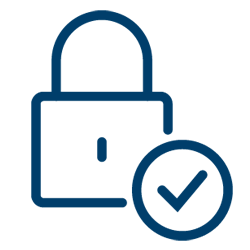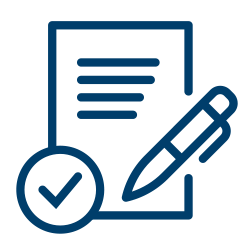
Our commitment to accessibility
We are committed to supporting the Accessible Canada Act (ACA) goal of a barrier-free Canada for all by 2040. We strive to provide inclusive and accessible spaces, products and services that enable everyone, including people with disabilities, to interact barrier-free with FCC.
Our 2026-2028 Accessibility Plan
Our 2026-2028 Accessibility Plan commitments and actions in eight priority areas were developed following a comprehensive assessment and broad consultation with our accessibility partners, customers and employees with disabilities.Enhance visibility, alignment, accountability and cross-functional collaboration
Improve customer and employee experiences through proactive barrier identification and removal
Build accessibility know-how across the organization to guide inclusive product and service design
Apply insights from lived experiences to guide human-centered solutions that benefit everyone
We want to hear from you
We welcome your input to make our spaces, products and services accessible to everyone, including feedback on:
- Our accessibility plan
- Barriers when interacting with FCC
- Suggestions for improvement
- Accessibility requests
Request accessible formats of FCC materials, including our accessibility plan. Our target timeline to complete requests:
- Print: 15 days
- Large print: 15 days
- Braille: 45 days
- Audio: 45 days
Contact Us
Accessibility Lead, FCC Corporate Office
1800 Hamilton Street, Regina, SK
Canada, S4P 4L3
Telephone
1-888-332-3301 (toll-free) or 1-306-780-8100
Monday to Friday, 7:00 a.m. to 7:30 p.m. ET

Protecting your privacy
FCC is committed to protecting your privacy and personal information, collecting data under the authority of the Farm Credit Canada Act, and following the Accessible Canada Act and Privacy Act. Our Privacy Policy describes how we protect your personal information and how to contact the Privacy and Access Office if you have questions or concerns.
Learn more about our Privacy PolicyLearn more about our Privacy Policy